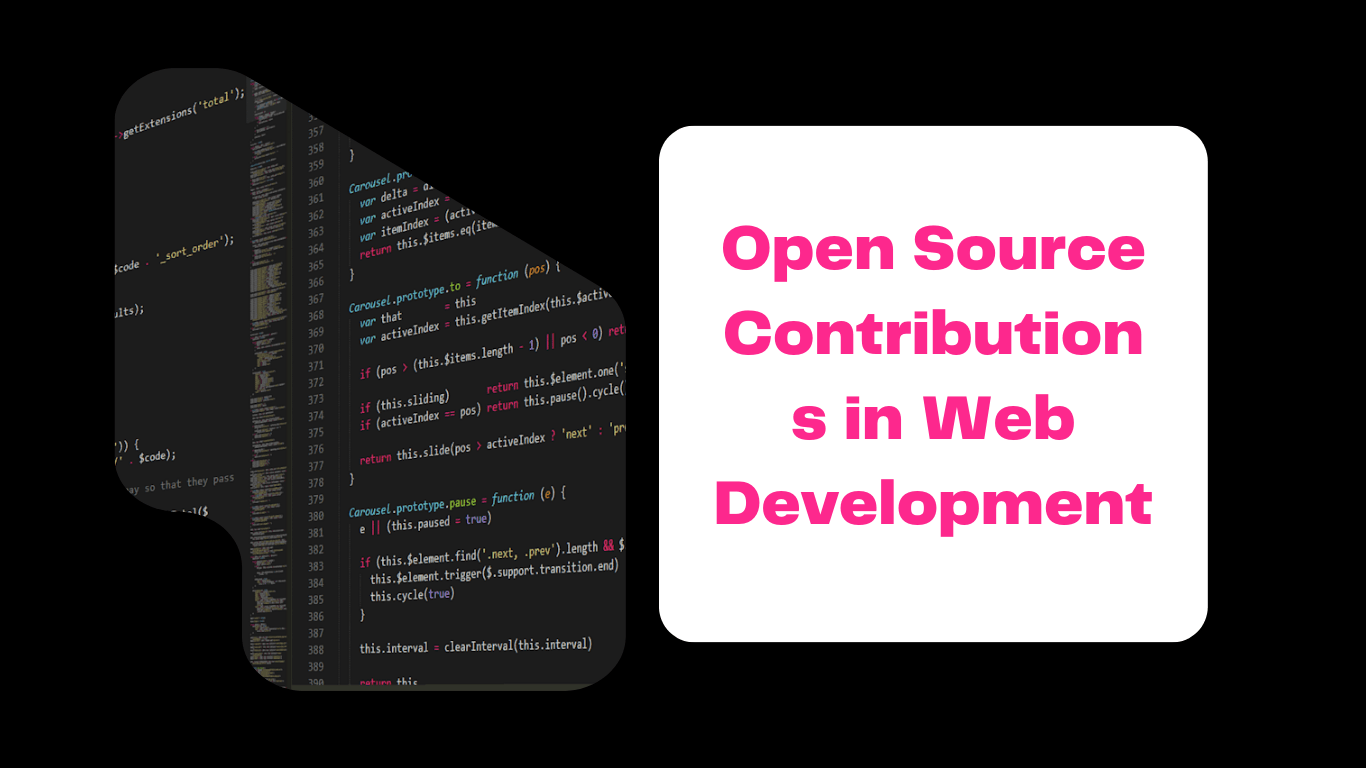Getting Started with Open Source Contributions in Web Development

Contributing to open source projects is a fantastic way to improve your skills, build your portfolio, and connect with the developer community. Here’s a guide to help you get started:
1. Understand the Basics of Open Source
- What is Open Source?
Open source software is code that is publicly accessible for anyone to view, modify, and distribute. Examples include React, Vue.js, and Node.js. - Why Contribute?
Contributions can:- Enhance your technical skills.
- Build your resume.
- Expand your professional network.
- Solve real-world problems.
2. Find the Right Project
- Start Small: Choose projects that match your skill level and interest. Look for beginner-friendly tags like:
good first issuehelp wanted
- Popular Platforms to Explore:
- GitHub: Search for repositories and issues.
- GitLab: Explore open source projects.
- Open Source Guides: Great resources for beginners.
- First Timers Only: Curated beginner-friendly issues.
3. Prepare Your Environment
- Learn Git and GitHub: Essential for managing contributions. Know how to:
- Clone repositories.
- Create branches.
- Commit changes.
- Open pull requests (PRs).
- Set Up Your Tools: Ensure your development environment is ready with tools like:
- Code editor (e.g., VS Code).
- Required dependencies (e.g., Node.js, npm).
4. Start Contributing
- Fork and Clone the Repository:
- Fork a project to create your copy.
- Clone it to your local system.
- Understand the Project:
- Read the
README.mdfile to understand the purpose and setup. - Check
CONTRIBUTING.mdfor guidelines. - Explore the codebase.
- Read the
- Pick an Issue:
- Look for simple issues such as fixing typos, updating documentation, or fixing small bugs.
- Work on the Issue:
- Create a new branch for your changes.
- Make changes locally and test them.
- Commit your changes with a clear message.
- Submit a Pull Request:
- Push your branch to your forked repository.
- Open a pull request to the original project’s repository.
- Provide a clear description of your changes.
5. Learn Best Practices
- Write Clean Code: Follow the project’s coding style.
- Document Your Changes: Update any necessary documentation or comments.
- Test Thoroughly: Ensure your changes don’t break existing functionality.
- Be Professional:
- Respect maintainers and contributors.
- Be open to feedback.
6. Engage with the Community
- Join Discussions: Participate in issues and pull request discussions.
- Ask Questions: Don’t hesitate to seek help from the maintainers.
- Attend Events: Join hackathons or open-source events to network and learn.
7. Build Your Contribution Portfolio
- Keep track of all your contributions on platforms like GitHub.
- Showcase your work on your portfolio or LinkedIn.
- Highlight significant contributions in your resume.
8. Explore Beginner-Friendly Projects
Here are some beginner-friendly open-source projects in web development:
- Frontend:
- Backend:
- Full Stack:
9. Keep Learning and Growing
- Continuously work on improving your technical skills.
- Challenge yourself with more complex contributions as you grow.
- Stay consistent and make contributing a habit.
By following these steps, you’ll be well on your way to making meaningful contributions to the open-source community in web development!